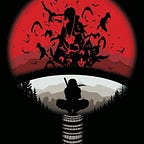A dystopian view on innovation
The evidence of this malaise is in the companies and ideas formed during the 21st century. Google had appeared and thrived around 2002, but it was an outlier. Between google and apple’s introduction of the iPhone in 2007, there’s a wasteland of ho-hum companies. and the hot new things that we’re starting Facebook and Twitter didn’t look like their predecessors — Hewlett Packard, Intel, Sun Microsystems that made physical products and employed thousands of people. In the years that followed, the goal went from taking huge risks to create new industries and grand new ideas, to chasing easier money by entertaining consumers and pumping out simple apps and advertisements. The best minds of my generation are thinking about how to make people click ads claimed Jeff Hammacher, an early Facebook engineer. Silicon valley looked an awful lot like Hollywood. Meanwhile, the consumers it served turned inward, obsessed with their virtual lives.
One of the first people to suggest this lull in innovation could signal a much larger problem was Johnathan Huebner, a physicist who works at the pentagon Naval Air Warfare Center in china lake California. Huebner is the leave it to beaver version of a merchant of death. Middle-aged, thin, and balding, he likes to wear a dirt-inspired ensemble of khaki pants, a brown striped shirt, and a canvas khaki jacket, he has designed weapons systems since 1985, gaining direct insight into the latest and greatest technology around materials, energy, and software. Following the dot-com bust, he became miffed at the ho-hum nature of the supposed innovation crossing his desk. In 2005 Huebner delivered a paper. A possible declining trend in worldwide innovation, which was an indictment of silicon valley or at least an ominous warning.
More also Hubner opted to use a tree metaphor to describe what he saw as the state of innovation. Man has already climbed past the trunk of the tree and gone out on its major limbs, mining most of the enormous game-changing ideas — the wheel, electricity, the airplane, the telephone, the transistor. Now we’re left dangling near the end of the branches at the top of the tree and mostly just refining past inventions. To back up his point in the paper. Huebner showed that the frequency of life-changing inventions had slowed. He also used data to prove that the number of patents filed per person has declined. “I think the probability of us discovering another top one hundred type invention gets smaller and smaller,” Huebner claims.
However Huebner predicted it would take people about five years to catch on to his thinking, and this forecast proved almost exactly right. Around 2010, Peter Thiel, the PayPal co-founder, and early Facebook investor began promoting the idea that the technology industry has let people down. “we wanted flying cars, instead we got 140 characters” became the tagline of his venture capital firm founders fund. in an essay called “what happened to the future” Thiel and his cohorts described how Twitter, its 140 character messages, and similar inventions have let the public down. He argued that science fiction, which once celebrated the future has turned dystopian because people no longer have an optimistic view of technology’s ability to change the world.
